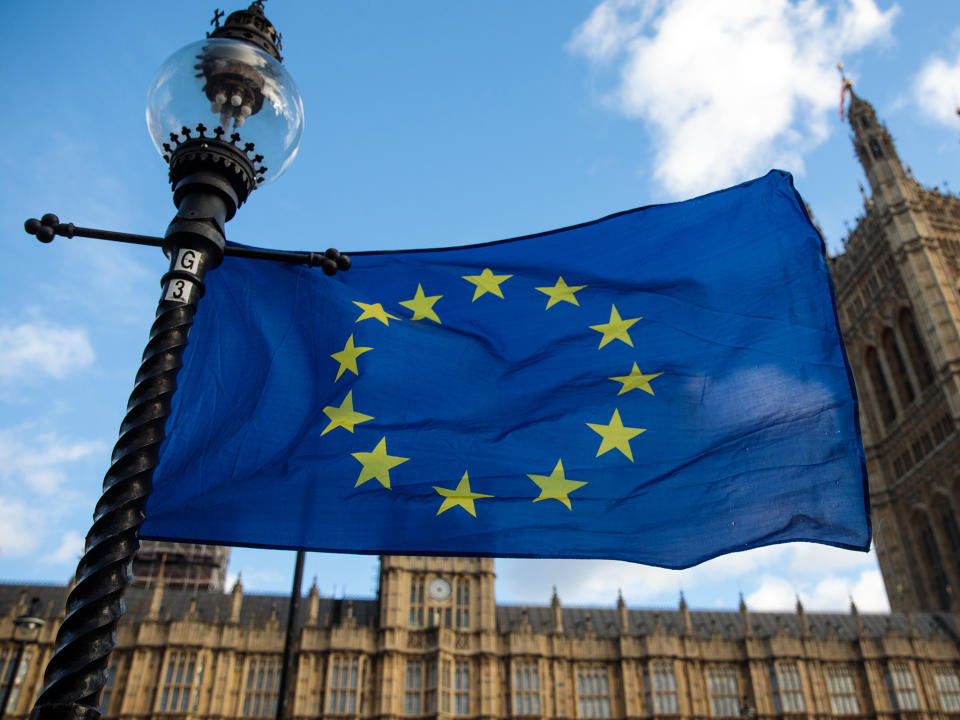Brexiteers are celebrating after Lord O'Neill's announcement that he predicts the economy will do well post-Brexit, but they shouldn't be so hasty

Lord (Jim) O’Neill’s intervention in the Brexit debate needs some clarification, and a little applied economics.
The phrase “ceteris paribus” is one of the most useful an economist – or anyone with an interest in the subject – needs to carry round in their analytical tool box. In case you’re not familiar with it, it means “other things being equal”, a simple idea that can clarify even the most knotty of problems. For that reason, it deserves to be dignified with a Latin form.
So when, for example, Lord O’Neill tells us that the benefits of the current unusual spurt of synchronised global growth now boosting the world economy means that the impact of Brexit will be “dwarfed” by booming exports to overseas markets, he may well be right – but it doesn’t mean Brexit is a “good thing” or that he is a born-again Brexiteer.
That, by the way, is going to be the big problem with analysing Brexit if and when it happens: that the “loss” of jobs and investment won’t be factories or offices or research centres closing so much as being left unbuilt – a hypothetical, invisible rather than a tangible obvious loss.
The UK is one of the most open trading nations in the world: more than one pound in every four that the UK generates in national income comes from its exports of goods and services, everything from architects’ fees to Nissan Qashqai cars. Thus, even if trade with the EU declines, if growth outside the EU is accelerating, then it could be that exports and GDP in the UK still grow. The point is that they would not grow as fast as they might were the UK to still be in the EU.
So what Lord O’Neill means – and I realise the former boss of Goldman Sachs is a more intelligent and articulate man than I am – is that a robustly expanding British economy would be “despite Brexit”, to use a loaded phrase, rather than “because of Brexit”. Ceteris paribus, UK economic growth will be higher, Lord O’Neill would agree, with the UK inside the European Union and its single market rather than being outside it. With some understatement he remarks: “I share the views of many that Brexit is a really weird thing for the UK to impose on itself from an economic perspective.”
The cumulative loss of, say, 3 per cent of GDP by 2030, because of Brexit, then, is a loss compared with whatever UK growth might otherwise be under general global world trading conditions. If the world economy is showing strong growth in all its major zones – the US, EU, Japan and the developing economies such as India and China – then the UK will also grow, but not by as much as it would had it stayed inside the EU. If, say, the world economy takes a downturn – possibly triggered by bursting bubbles in commodity and equity markets and Donald Trump’s protectionist policies – then, instead of the British economy maybe stagnating, it will actually shrink. And so on. As it happens, Lord O’Neill adds: “If we go for a really hard Brexit or a no-deal Brexit, we’ll probably suffer more than that 3 per cent.”
Also, much depends on trends in population growth, which cut both ways. If immigration is drastically reduced and the national income is falling, then GDP per head, which broadly defines wages and living standards, will be a matter of which is falling fastest. Who can predict how that would work?
Or, to look at the same thing another way, Lord O’Neill is optimistic for the progress of the UK’s notoriously poor productivity record; then again, lower investment post-Brexit would probably mean lower productivity growth (ceteris paribus).
Where Lord O’Neill admits a misjudgement of sorts is in his estimation of the resilience and flexibility of the UK economy. If it does turn out to be the case then resources – investment, people, finance – can be moved swiftly from sectors that will be hit hard by Brexit, and into those where there are prospects for growth, then the adjustment will be faster and less painful than otherwise – but there will still be a hit in lost jobs and lower living standards than would otherwise pertain.
The actual economic outcomes, then, a decade or more into the future are very hard to predict. Account also has to be made for the policies of the UK Government. It might be that for Brexit to succeed then the UK will need “Mrs Thatcher’s Fourth Term” – to radically reform its economy to make it truly globally competitive. That means less regulation, more privatisation, weaker rights for workers and very possibly a smaller welfare state and an ultra-low tax regime. That would produce a quite different scenario to, say, a Jeremy Corbyn-led Labour government that implemented a massive programme of public investment, nationalisation and much stronger rights for workers and controls on business and finance. Political trends too make a huge difference to the economic future of all of us (ceteris paribus).

 Yahoo News
Yahoo News 